Change Stories involves academics and their community-based partners in Belfast (Queen’s University), Northern Ireland, Belo Horizonte (Federal University of Minas Gerais Brazil and Observatory for Urban Health), Brazil, and Bogotá (Universidad de los Andes), Colombia.
Partners at the University of Washington (where the project is based) and the Institute for Inclusive Economies and Sustainable Livelihoods at the University of Toronto, Scarborough (Canada) will focus on generating comparative research and policy-relevant knowledge. All collaborators are interested in advancing South-South and South-North learning experiences that can advance equity and sustainability goals globally.
Our international advisory group provides guidance on the research methodology and approach, including helping to connect us with new organizations for collaboration.
Academic partners

María José (Majo) Álvarez Rivadulla, Professor of Sociology at Universidad de los Andes in Bogotá, Colombia. Álvarez-Rivadulla holds a BA in Social Work from Universidad de la República (Uruguay) and an MA and PhD in Sociology from University of Pittsburgh. She studies social inequality using mixed-methods. Her book, Squatters and the Politics of Marginality (Springer, 2017), tells the political history of squatting in Montevideo. She has also worked and published on residential segregation, popular neighborhoods and urban interventions, social housing, tolerance to inequality, middle classes, gated communities, interclass relations in college and social mobility.
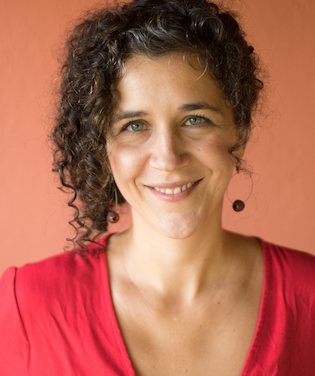
Elis Borde, Assistant Professor in the Faculty of Medicine, Federal University of Minas Gerais Brazil (UFMG) and research in the Observatory for Urban Health (OSUBH-UFMG) in Belo Horizonte, Brazil. Borde holds a doctorate in public health from the National University of Colombia, a master’s degree in public health from the Brazilian National School of Public Health (ENSP/FIOCRUZ) and a BSc in European Public Health from Maastricht University (Netherlands) and additionally trained in postcolonial studies (CLACSO) and geography in her PhD. Her research focuses on urban violence, global health, social determinants of health and health inequities, using qualitative and participatory methods.

Waleska Teixeira Caiaffa, Director Observatory for Urban Health (OSUBH-UFMG) and Visiting Professor at the Federal University of Minas Gerais Brazil (UFMG) in Belo Horizonte, Brazil. After training as a pediatrician, Caiaffa specialized in public health at Bloomberg Johns Hopkins School of Public Health (master and post-doctoral) and at the UFMG (doctoral degree). She served as a full professor of Epidemiology and Public Health, School of Medicine, UFMG, where currently, she is a visiting professor. Caiaffa founded the OSUBH-UFMG in 2002 and is the director. Throughout her career, she has maintained links to national and international groups on urban health involving research and training initiatives and collaborated with global urban health expert groups, such as serving on the board of the International Society for Urban Health (ISUH) from 2007-14 and as president from 2011-14.
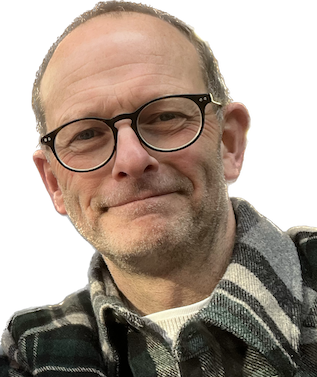
Geraint Ellis, Professor in the School of Natural and Built Environment at Queen’s University, Belfast in Northern Ireland. Ellis holds a doctorate in City and Regional Planning from Cardiff University (UK) and an MPhil in Environmental Planning from University of Reading (UK). His research interests lie in the broad field of spatial planning and sustainability, with a particular emphasis on environmental governance, renewable energy, marine spatial planning, environmental justice and equality issues in planning. Ellis is Editor of the Journal of Environmental Policy and Planning and Associate Editor of the Cities & Health journal. He is active in the Northern Ireland voluntary sector, having been a Board Director of Belfast Healthy Cities and currently Chairs a refugee support group and Whitehead Small World Group.
Friederike Fleischer, Associate Professor of Anthropology, at Universidad de los Andes in Bogotá, Colombia. Fleischer holds a PhD in Anthropology from City University of New York. Her research in China and Colombia centers on processes of socioeconomic and spatial stratification; social life and inequality; and social support and wellbeing in urban contexts. She has authored several books including Soup, Love, and a ‘Helping Hand’: Social Support in Guangzhou, China (Berghahn, 2018) and co-edited the volume titled Ethnographies of Support (Palgrave, 2013). She is a former Research Fellow at the Max Planck Institute for Social Anthropology in Germany.
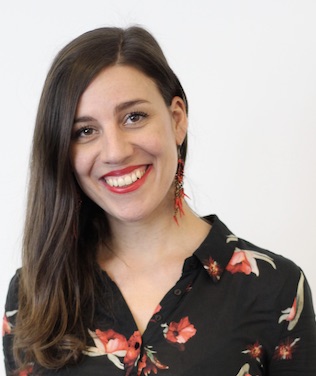
Magdalena Haakenstad, Postdoctoral Scholar in Urban Planning for Health in the University of Washington Department of Urban Design and Planning in Seattle, Washington, USA. She is a cultural anthropologist interested in environmental health, means and strategies of political negotiation, visual communication in public space, and decolonizing methodologies. As a part of her research, she had an opportunity to work with historically marginalized communities in Mexico, the US and Slovakia on public art projects, storytelling, photo essays, and filmmaking to help amplify their voices. She holds a PhD in General Anthropology from Charles University in Prague, Czech Republic.

Adriana Hurtado Tarazona, Associate professor in planning, governance and territorial development at the Interdisciplinary Centre of Development Studies (Cider), Universidad de los Andes in Bogotá, Colombia. Tarazona holds a PhD in anthropology and an MSc in regional development planning and management. Hurtado Tarazona has worked as a researcher, lecturer and consultant in urban, land and housing policy, urban and metropolitan management, inequalities, social housing and informality.

Olga Lucia Sarmiento, Professor of the Department of Public Health at the School of Medicine and director of the Group of Epidemiology at Universidad de los Andes in Bogotá, Colombia. Lucia Sarmiento holds an MD from the Universidad Javeriana (Bogotá) and an MPH and PhD from the Department of Epidemiology at the School of Public Health at the University of North Carolina at Chapel Hill. Her transdisciplinary research focuses on the relationship between the built environment, policy and healthy behaviors in Latin America.
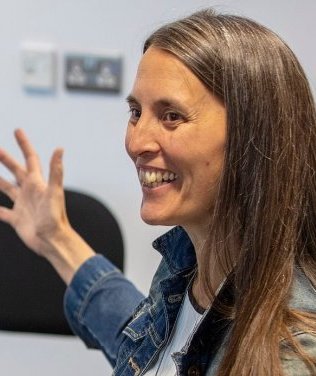
Agustina Martire, Senior Lecturer in the School of Natural and Built Environment at Queen’s University, Belfast in Northern Ireland. Martire has a PhD in Urban History from Technische Universiteit Delft (Netherlands) and a professional architecture qualification from Universidad de Buenos Aires. Her research focuses on street life, community engagement and urban regeneration. Martire advises a range of local NGOs including Participation and the Practice of Rights (PPR) and Northern Ireland Ministerial Advisory Group for Architecture and Built Environment; and is board member of Sailortown Regeneration and founding member of Belfast Cycling Campaign. She is the editor of the book: Everyday Streets, Inclusive approaches to understanding and designing streets, published by UCL Press in May 2023.
Sergio Montero, Associate Professor of Geography & Planning and Director of the Institute for Inclusive Economies & Sustainable Livelihoods at the University of Toronto, Scarborough in Canada. Montero’s research has been focused on the politics of urban and regional planning; on the South-South and South-North circulation, learning and adoption of international policy models and “best practices,” particularly around sustainable transport; and on local and regional economic development strategies, especially in Latin America. He has co-edited four books on local economic development (Ed. Uniandes, 2021), on the governance dynamics of peripheral regions (Routledge, 2019), and on the global circulation, mobility and diffusion of urban policy knowledge (Hucitec, 2021; Routledge, 2020). He holds a BA in Economics from Universidad de Granada (Spain) and a master and PhD in City and Regional Planning from UC Berkeley.

Rebecca Morley, founder and president of Rebecca Morley Consulting. Morley works with nonprofit clients to improve health and equity in communities that have experienced disinvestment and marginalization due to racialized concentrated poverty and structural racism. She is working with the University of Washington on the Change Stories project. Morley brings 30 years of research, policy, philanthropic, and communications experience to support communities that are solving pernicious health and environmental problems. She was the Director of the Health Impact Project, a collaboration of the Robert Wood Johnson Foundation and the Pew Charitable Trusts from 2015 to 2017 and the director of the National Center for Healthy Housing (NCHH) between 2002 and 2014. She also worked for the U.S. Department of Housing and Urban Development and as a legislative fellow in the United States Senate. She holds a master’s degree in public policy from the Georgia Institute of Technology and is a graduate of Achieving Excellence, a joint leadership program of NeighborWorks America and Harvard University.
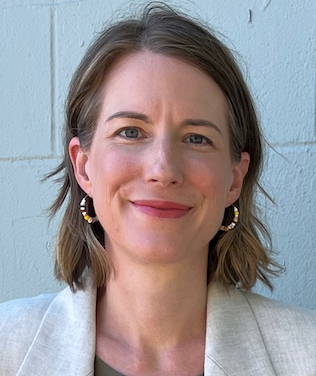
Helen Pineo, Research Associate Professor in the University of Washington Department of Urban Design and Planning in Seattle, Washington, USA. Pineo is principal investigator of the Change Stories project. She is an urban planner and researcher who focuses broadly on how urban change can support health and sustainability in the context of environmental degradation and equity challenges. She holds a Bachelor’s in Community and Environmental Planning and English Literature from the University of Washington in Seattle. She holds a Master’s in Linguistics and a PhD in Healthy and Sustainable Built Environments from University College London. Prior to entering academia in 2018, she worked for over 10 years in British public and private sector organizations in the areas of sustainable development and urban policy.
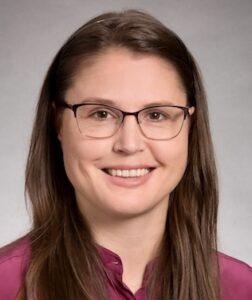
Rachel Smith is a family medicine physician and sociologist by training. She is currently completing a global health fellowship through the University of Washington’s Department of Family Medicine. She has been working primarily in clinical medicine for the past three years and her goal during this fellowship year is to find avenues to incorporate research back into her career. Her methodological background is in qualitative methods and her prior research looked at women’s access to care for chronic health conditions (CHCs) in Tanzania using semi-structured interviews and ethnography. The Change Stories project excites her for a variety of reasons including the commitment to decolonizing knowledge production and the emphasis on diverse local contexts to better understand transformational urban change. More specifically, since urbanization has been associated with an increased risk of developing CHCs such as diabetes and heart disease, she is interested in how equitable urban development may provide some level of protection against these risk factors.
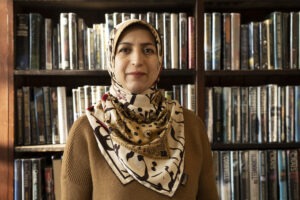
Azadeh Sobout is an interdisciplinary urbanist and researcher specialised in experimental and alternative urbanism, social movements organising, human rights campaigning and transitional justice. As a scholar activist, Azadeh is interested in disentangling the ways in which urban collective actions, ideas, and tools shape policy and activism. Currently based at Queen’s University Belfast, Azadeh works with local campaigners and communities to developing a framework for urban theorising from below, deeply rooted in contextual/situated knowledge linking theoretical and methodological approaches with practice. With a commitment to solidarity scholarship, a scholarship that seeks to create knowledge that can assist communities in political struggles, she has been leading a research project on the intersection of urban change and storytelling in Belfast. The project will facilitate theorising alternative forms of urbanism and urban regeneration through documenting and sharing everyday urban practices. With a focus on non-conventional urbanisms, continuous displacement and migration, spatial violence and housing justice, Azadeh’s writings have appeared in academic journals, magazines as well as on alternative websites.
Community-based partners
Consejo Consultivo de Mujeres (CCM) is a women’s advisory group for issues of gender equality that unites different women’s organizations, groups and networks of Bogotá. Local government must work with the council in developing and implementing all aspects of the Public Policy on Women and Gender Equality, including the city system of care and the blocks of care.
Brazil’s Landless Workers Movement, Movimento dos Trabalhadores Rurais Sem Terra (MST) in Portuguese, is a mass social movement that emerged in 1984 and is formed by rural workers and by all those who want to fight for land reform and against injustice and social inequality. MST fights for agrarian reform and social justice. In addition to occupying latifundios (large landholdings) for sustainable agricultural production in rural areas, more recently, the movement has assumed an important role in promoting food security in urban areas. Through the Solidarity Kitchens, the movement provides free and nutritious meals to vulnerable populations, combating hunger in cities and strengthening solidarity between rural and urban communities.
O Movimento de Luta nos Bairros, Vilas e Favelas (MLB) is a social movement advocating for urban reform and human rights that has played an active role in promoting food justice and fair housing policies.
Participation and the Practice of Rights was formed in 2006 by Inez McCormack, a leading Irish Trade Unionist. PPR aims to translate international human rights standards into grassroots tools for economic, social and environmental change. It runs campaigns on rights to mental health, income, housing and digital resources, each supported by community and voluntary groups, politicians, activist networks, funders and international collaborators in Scotland, South Africa, USA, England and elsewhere.
Advisory Group
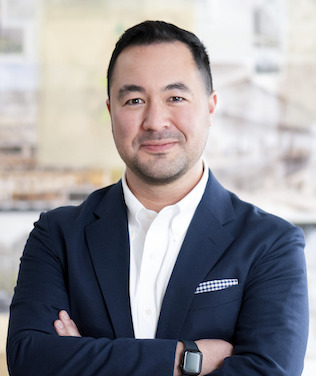
Michael Austin is a senior associate at the NYC-based architecture and urban design firm, Cooper Robertson, where he plays a key role in advancing projects grounded in equitable outcomes, drawing on extensive experience from both the public and private sectors. During his tenure as Chair of the Seattle Planning Commission amid a period of intense regional growth, he helped facilitate research and recommendations for equity-focused strategies in community development. An advocate for inclusion in the design industry, Michael has made significant contributions to research and op-eds exploring inclusion and the impact of emerging technologies on the built environment. He has a Bachelor of City and Regional Planning from Cal Poly, San Luis Obispo, and a Master of Architecture from Pratt Institute.
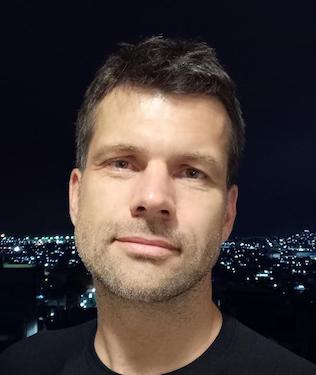
Timo Bartholl engages in local grassroots work and has lived in the Maré favela in Rio de Janeiro, since 2008. He works at the interface of university and community, is a geography professor at the Fluminense Federal University (UFF) in Niterói, Brazil, and a founding member of the Roça! Collective. Geographies in movement(s), militant investigation, favela resistance, urban struggles related to food sovereignty/food autonomy, collective economies and geopolitics from a global south perspective are his key fields of interest.
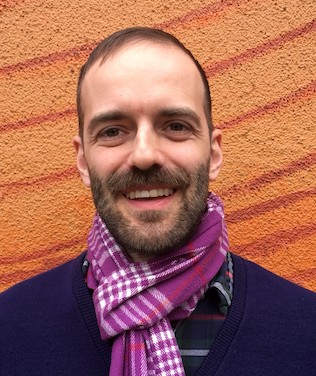
Alex Brennan is the Executive Director of Futurewise, a non-profit that advocates for more sustainable, equitable land use policies in Washington State. Since becoming Executive Director in 2019, he has built successful campaigns to address climate change, housing affordability and habitat and farmland protection in state and local planning. Previously, Alex led neighborhood-based community organizing and advocacy to dedicate public land for affordable housing, implement inclusionary zoning, adopt parking and transportation demand management strategies, and create more pedestrian oriented streets. He holds a Master’s in City Planning from UC Berkeley.
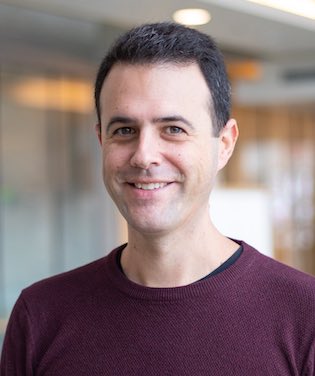
Joao Bastos is an expert on the health effects of racism, including the health impacts from interlocking systems of oppression. The lines of inquiry that Bastos has been pursuing since 2007 are expressed in over 140 publications in peer-reviewed journals, 9 book chapters, 1 monograph on measuring the health effects of racism, and a number of research grants on the topics of racism, intersectionality, and health inequities. Among the most significant achievements of Bastos’ career, the construction of the first-ever Brazilian scale on experiences with discrimination, as well as his pioneering studies on intersectionality, discrimination, and health inequities in Australia, Brazil, and the United States are worth mentioning. As of December 14 2023, CI Bastos has 3,730 Scopus citations, a Scopus H index of 30, and a Google Scholar H index of 47.

Based in Puerto Rico, Maria Elena (she / her / ella) has over fifteen years of experience using food as a vehicle to build vibrant, just communities. In her current role as VP, Research & Culture at food systems consultancy DAISA Enterprises, Maria Elena conducts field-building research, provides project management and strategic assistance to clients, and fosters collaboration and capacity-building among community-based food systems organizations. Previously, she has led initiatives in food justice organizing, food access expansion, farmers’ market development, food entrepreneurship, and supporting small-scale sustainable farmers in Washington State, California, Florida, Italy, and now Puerto Rico. Maria Elena is committed to creating a food system that honors ancestral cultural knowledge, uplifts BIPOC communities, nourishes the environment, and deepens Queer community. BA Environmental Studies, University of Washington, Seattle. MS Community Development, University of California, Davis. Trilingual: English, Spanish, Italian.

Caroline Shenaz Hossein is Associate Professor of Global Development Studies and Political Science at the University of Toronto Scarborough, Canada. She holds a Canada Research Chair Tier 2 in Africana Development & Feminist Political Economy and an Ontario Early Researcher Award. Author of the award-winning Politicized Microfinance: Money, Power and Violence in the Black Americas and editor of The Black Social Economy, Community Economies in the Global South and Beyond Racial Capitalism. She is the founding member of the international Diverse Solidarity Economies Collective (DISE), highlighting the need to amplify culturally diverse community economies to counter the systemic economic exclusion of marginalized populations. See more at Twitter @carolinehossein and www.africanaeconomics.com.
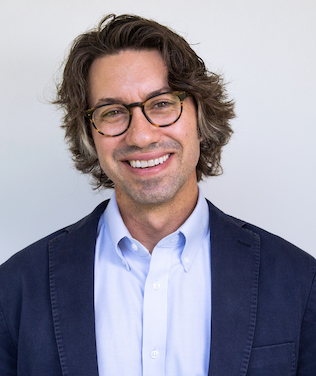
Nat Kendall-Taylor, PhD, is chief executive officer at the FrameWorks Institute, a research think tank in Washington, DC. He leads a multi-disciplinary team in conducting and implementing research on public understanding and framing of social issues. A psychological anthropologist, Nat publishes widely on communications research and lectures frequently. He is senior fellow at the Center on the Developing Child at Harvard University, visiting professor at the Child Study Center at Yale School of Medicine, and fellow at the British-American Project.

Debbie Lacy is the Founder and Executive Director for Eastside For All, a nonprofit advocacy organization in East King County, Washington that focuses on racial equity issues in housing, school districts, policing, economic development, placemaking, and urban planning. Eastside For All’s Build for Belonging initiative has been featured in Who Belongs? – a series of podcasts published by the Othering and Belonging Institute. In 2023, Debbie was recognized by Welcoming America as one of five Women of Welcoming in the U.S. Debbie holds a B.A. in Psychology from Wellesley College and received her MSW from the University of Maryland at Baltimore.

Dr Gemma Moore is an Associate Professor (Teaching) and Senior Research Fellow, at the Institute for Environmental Design and Engineering at the Bartlett, UCL. Gemma is an interdisciplinary, applied social scientist, whose research and education focuses on developing approaches and methodologies for the collective production of knowledge in the field of sustainable, healthy urban environments. This involves practices of participation and engagement in research and education processes. Between 2020-2023 Gemma was part of a large collective research team on the ‘Complex Urban Systems for Sustainability and Health’ programme, which explored, and evaluated, how different forms of evidence are negotiated and applied in complex multi-stakeholder urban health initiatives. Gemma is a member of the Bartlett Faculty leadership team as Faculty Impact Lead. She also leads, with UCL colleagues and Compost London, an engaged learning programme (the Evaluation Exchange) which supports community organisations and teams to build research and evaluation capacity.

Catalina Ortiz is a Colombian urbanist and educator passionate about spatial justice. She obtained her PhD in Urban Planning and Policy from the University of Illinois at Chicago and presently holds the position of Associate Professor and Programme Leader for the MSc Building and Urban Design in Development at University College London. Her research employs decolonial and critical urban theory, as well as knowledge co-production methodologies, to examine the politics of space production.

Aarathi Prasad, PhD is a writer, broadcaster, and researcher interested in the intersection of science and technology with cultures, history, health, and the environment. Formerly a Senior Research Fellow at the UCL Institute for Global Health, where she focused on public engagement with climate science, sustainability and urban health in Kenya, she is now Regional Manager for Europe and Western Asia at National Geographic, and an Honorary Research Fellow in Genetics, Evolution and Environment at University College London.
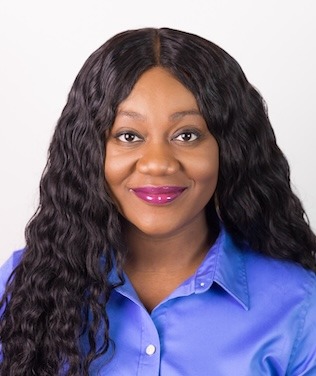
Ty Redden is an urban planner specializing in housing and social policy. Dr. Redden’s work considers how race, class, gender, and sexuality engage issues of spatial justice. Dr. Redden has conducted research on behalf of the Andrew Young School of Policy Studies at Georgia State University, the Office of the Deputy Chief Operating Officer for Development in DeKalb County, Georgia, and the National Institutes of Health. She is a frequent presenter at the Association of Collegiate Schools of Planning Annual Conference and the Urban Affairs Annual Conference. Currently an assistant professor at the University of Toronto, Dr. Redden has published works that investigate the historic marginalization of African American communities through the lens of community development and planning policy in the Journal of the American Planning Association and Learning from Arnstein’s ladder: From Citizen Participation to Public Engagement.

Sharon Roerty, AICP/PP/MCRP, is a Senior Program Officer at the Robert Wood Johnson Foundation where she concentrates on the impact of the built and natural environment on population health including looking for global exemplars that can be adapted and adopted in the U.S. to promote, lift-up, and build out health equity. She has developed programming initiatives relative to childhood obesity, community development, social isolation, climate change, and sustainable and equitable development. Prior to RWJF, Roerty was the CEO of the National Center for Bicycling & Walking (NCBW). In and outside of government organizations, Sharon has comprehensive experience working on transportation, environmental and urban policy, and planning initiatives. One of Sharon’s heroes is U.S. Congressman John Lewis, who challenged all of us to “make some good trouble.”
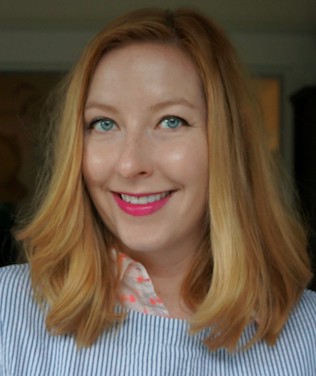
Heather Wooten is a principal at Onside Partners, where she partners with leaders to create healthy, sustainable, and economically vibrant communities for all by designing and implementing innovative initiatives, coaching teams and developing people, and crafting strategy, communications, and partnerships. She specializes in supporting leaders to tackle complex issues that require the messy (yet fun!) work of collaboration, and has deep knowledge of the policymaking process, government operations, and the nonprofit sector. She is the recipient of the 2014 William R. and June Dale Prize for Excellence in Urban and Regional Planning from Cal Poly Pomona for her work in food systems planning. Heather graduated from the University of Minnesota and received her master’s degree in city planning from UC Berkeley. She has certificates in Organizational Diagnosis and Small Group Facilitation from Community at Work.